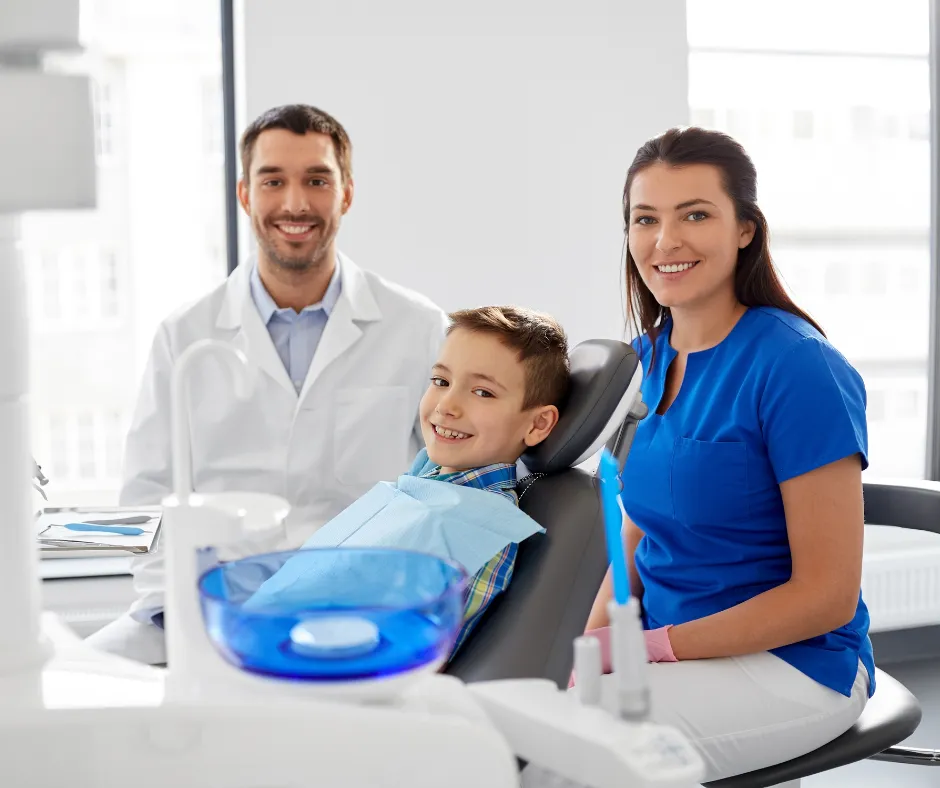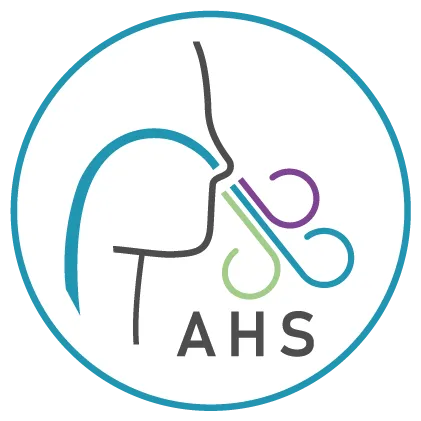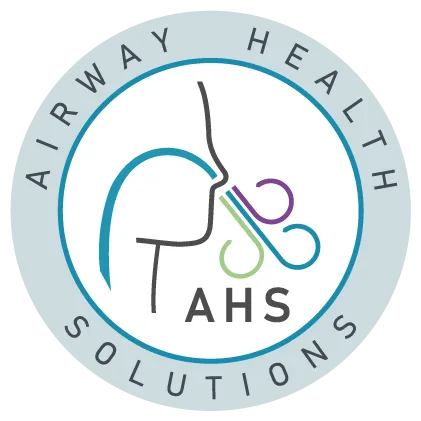Empowering Change - Strategies for Pediatric Behavior Management
Optimizing Airway Health Growth & Development with Sharon Moore, SLP
Coming Soon

Empowering Change - Strategies for Pediatric Behavior Management

Optimizing Airway Health Growth & Development with Sharon Moore, SLP
Coming Soon
Empowering Change - Strategies for Pediatric Behavior Management
Optimizing Airway Health Growth & Development with Sharon Moore, SLP
Most healthcare professionals treating children for ‘airway’ challenges in their early years are well acquainted with the importance of early intervention to support craniofacial growth by way of functional stimulation and treatment of dysfunction.
Maximizing developmental opportunities to promote optimal upper airway functions is not always easy. There are many strategies to capitalize on prime growth periods and address the challenges faced by health professionals and families, including, techniques for interaction that establish and maintain a child’s interest, a parent’s patience, or even a clinician’s apprehension in working with young children.
This course is designed to expand your clinical tool-kit, with multiple behavioral and psychological strategies for children and parents alike, tailored specifically to conform to ‘how young children learn’.
An ecosystem of supports and guides are required to establish consistent practice and success in development and establishment of the long-term habits that support airway health, growth and development. This course is an opportunity to diversify and expand your toolkit. Equip yourself with a range of strategies to effectively address common challenges in pediatric behavior management.
Learning Objectives:
Recap the Principles of Functional Growth Stimulation:
Clearly understand and articulate the underlying principles of functional growth stimulation in preschool children, including the; what, why, how, who, and when of ‘functional interventions.’
Identify and Outline Therapy Goals:
o Define and articulate the primary goals of therapy, focusing on achieving functional stimulation for craniofacial growth and development.
o Establish clear roles and accountability within the therapy process, ensuring all participants understand their responsibilities.
Observe and Measure Progress:
Develop the skills to observe and measure incremental progress towards key functional goals, ensuring that therapy is on track and effective.
Maintain Children’s Motivation and Engagement in Therapy:
Learn and apply multiple strategies to keep children engaged and motivated throughout the therapy process, ensuring continuous participation and progress.
Guide Parents on Program Implementation:
Master various strategies for effectively guiding and supporting parents in the implementation of therapy programs at home, ensuring consistency and success.
Set Realistic Goals and Timeframes:
o Set and manage realistic goals and timeframes for therapy, with a deep understanding of potential obstacles and barriers.
o Ensure clear definition of roles in therapy and develop strategies to overcome challenges, maintaining focus on achieving desired outcomes.

Explore language to unpack the complexity Sleep Apnea’s severity metrics: AHI, RDI, REI, the many definitions of hypopnea, obstructive vs central sleep apnea.
Recognize the nuanced language that goes into the discussion of individual risk associated with Sleep Apnea and know how to collaboratively apply this language with your patients.
Comprehend the complexity of the underlying pathophysiology of Sleep Apnea, by breaking apart the “many moving parts” of obstructive sleep apnea and central sleep apnea and seeing how they relate to one another.
Implement a patient-centered approach to understand and clarify a patient's sleep-wake complaints by establishing their narrative.
Comprehend and critically evaluate the many different testing options for the diagnosis of Sleep Apnea,
Comprehend and critically evaluate the many different options available for the treatment of Sleep Apnea, including a discussion of emerging options, like INSPIRE and EXCITE.
Comprehend and clinically integrate basic science concepts of the regulation of sleep-wake signaling (an introduction to the Two Process Model). This objective will include a practical working knowledge of the complexity sensemaking tool: The Circadian Rhythmo-Wheel.
Identify and triage common complications of therapy, including positive airway pressure toxicity, Willis Ekbom Disease (“restless legs syndrome”) and treatment emergent central sleep apnea.
Apply the patient-centered collaborative complexity sensemaking tool, the "Five Finger Approach," to unpack nonspecific sleep-wake complaints.
Deploy strategies of Cognitive Behavioral Therapy for Insomnia (CBTi), such as proactive wind-down time, sleep restriction therapy, stimulus control therapy, and chronotherapy.
These objectives are designed to provide clarity and direction a comprehensive understanding of the therapy process and its goals.
Empowering Change - Strategies for Pediatric Behavior Management: Optimizing Airway Health Growth & Development with Sharon Moore, SLP
New Hybrid Format
Experience a dynamic learning environment with structured cohorts that allow you to engage in both self-paced modules and live Q&A sessions throughout the semester.
(High speed internet connection required for Live Q&A sessions)
Date & Time
Coming Soon
Fee
$699
Tuition Includes
Up to (6) CEU Hours
Course handouts
*We understand that schedules can be hectic. If you’re unable to log in within the first 20 minutes of a live Q&A session, you’re welcome to join the next session.
Airway Chat with Dr. David McCarty
Treating the Acute TMD Patient
This was an epic hour of dental education!
Watch Dr. Gelb's and Dr. Miraglia's informative hour filled with learnings about managing the Acute TMD Patient and Collaborative Care using Airway Orthodontics to help treat TMD patients.
You will be amazed by the pearls provided throughout the entire hour. Please consider sharing with your colleagues!


Sharon Moore, SLP
Sharon Moore-founder of Well Spoken in Canberra Aust has worked as a Speech Pathologist for 4 decades serving medical and dental specialist referrals, managing disorders of function in the upper airway. Orofacial Myofunctional science and & other neuromuscular principles are fully integrated into diagnosis, assessment and treatment for: breathing, swallowing, chewing, phonation, speech & breathing challenges during sleep.
Further, her career has extended to writing, speaking and resource creation to support her advocacy work for children and families in managing airway related health challenges.

Cancellation Policy: No refunds will be offered. Attendee may attend a future virtual or live event if unable to attend the scheduled event.
Contact Us
Scroll below to book a time for us to connect or click here.
Call Airway Health Solutions at (631) 835-1726..
Fill out form below and we will contact you.
We pride ourselves on customizing our services to help your office integrate airway health solutions for your patients.

Cancellation Policy: No refunds will be offered. Attendee may attend a future virtual or live event if unable to attend the scheduled event.
If the live event needs to be cancelled due to Covid or unforeseen events, AHS will run the Advanced Mini-Residency virtually. AHS will refund the live tuition difference.

Cancellation Policy: No refunds will be offered. Attendee may attend a future virtual or live event if unable to attend the scheduled event.
If the live event needs to be cancelled due to Covid or unforeseen events, AHS will run the Advanced Mini-Residency virtually. AHS will refund the live tuition difference.
Looking Beyond the Mouth w/ Dr. Susan Maples
©Copyright 2024. All rights Reserved.
Privacy Policy | Terms and Conditions
©Copyright 2025. All rights Reserved.
Privacy Policy | Terms and Conditions
©Copyright 2022. All rights Reserved.
Privacy Policy | Terms and Conditions





